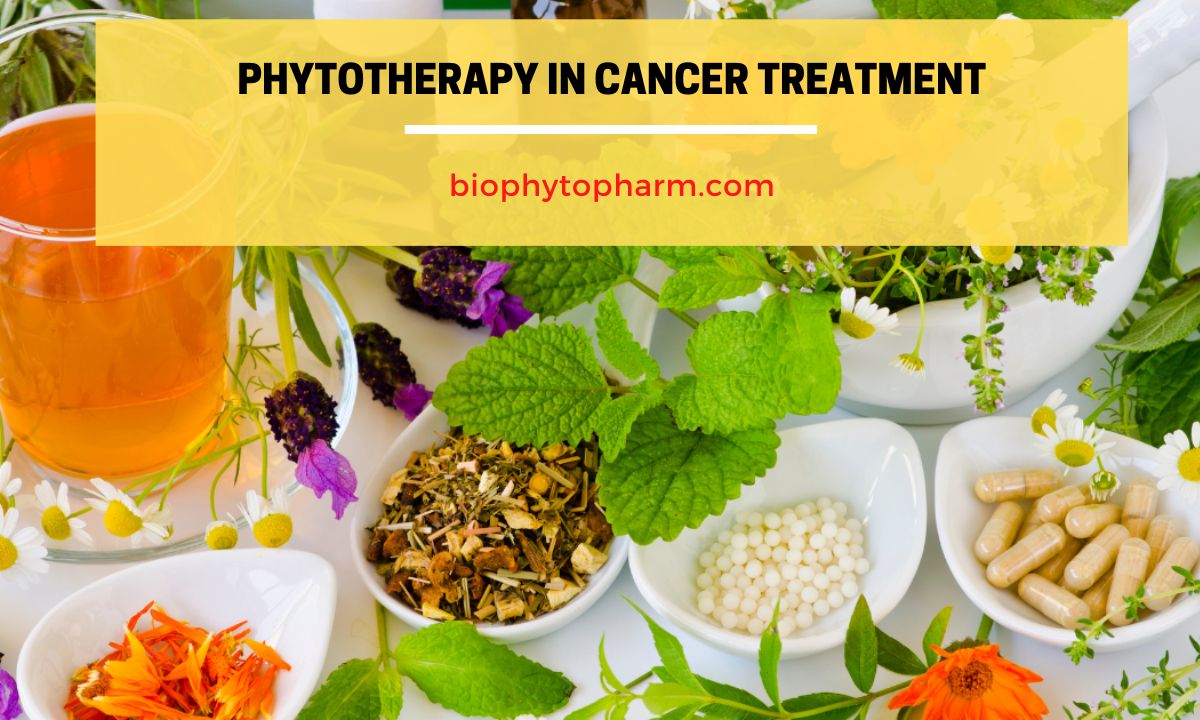Phytotherapy in Cancer Treatment: A Comprehensive Guide to Natural Remedies and Their Potential Benefits
Welcome to our comprehensive guide on Phytotherapy in Cancer Treatment, exploring the fascinating world of natural remedies and their potential role in supporting cancer patients. Phytotherapy, also known as herbal medicine or botanical medicine, involves the use of plant-based substances to promote healing and enhance well-being.
In this article, we will delve into various botanical compounds that have shown promise in cancer treatment and highlight their potential benefits. As experts in the field of natural medicine, our mission is to help you outrank other websites and disseminate valuable information on this crucial topic.
Understanding Phytotherapy and Cancer
Phytotherapy is an ancient practice dating back centuries, with cultures around the world harnessing the healing properties of plants to combat various ailments, including cancer. In recent years, scientific research has intensified, shedding light on the potential anti-cancer properties of numerous plant compounds.
It is essential to clarify that while phytotherapy may complement conventional cancer treatments, it is not a standalone replacement for medical intervention. Always consult with qualified healthcare professionals before incorporating any new therapies into your cancer treatment plan.
Promising Botanical Compounds in Cancer Treatment
Several botanical compounds have shown promise in preclinical and clinical studies for their potential anti-cancer effects. Below, we discuss some of the most notable ones:
1. Curcumin (Turmeric)
Curcumin, the active compound found in turmeric, exhibits potent anti-inflammatory and antioxidant properties. Studies suggest that curcumin may help inhibit the growth and spread of cancer cells, making it a subject of intense research in cancer treatment.
2. Green Tea Polyphenols
Green tea polyphenols, particularly epigallocatechin gallate (EGCG), have shown anti-cancer potential in various cancer types. Their antioxidant properties may help neutralize harmful free radicals and prevent cell damage.
3. Resveratrol (Grapes and Berries)
Resveratrol, abundant in grapes and berries, has drawn attention for its potential to inhibit cancer cell proliferation and induce apoptosis (cell death). Additionally, it may help reduce inflammation and oxidative stress.
4. Quercetin (Fruits and Vegetables)
Quercetin, a flavonoid found in various fruits and vegetables, possesses anti-cancer properties. It may help inhibit cancer cell growth and support the immune system’s ability to target cancerous cells.
5. Artemisinin (Sweet Wormwood)
Artemisinin, derived from the sweet wormwood plant, has demonstrated promising results in preclinical studies against certain cancer types. It may interfere with cancer cell growth and induce apoptosis.
6. Vitamin D
While not a botanical compound, vitamin D, commonly obtained from sunlight and certain foods, plays a crucial role in cancer prevention and treatment. It may help regulate cell growth and support the immune system.
Phytotherapy’s Role in Cancer Care
Phytotherapy can play a supportive role in cancer care by:
1. Alleviating Side Effects
Some botanical compounds may help alleviate common side effects of cancer treatments, such as nausea, fatigue, and inflammation.
2. Boosting the Immune System
Certain plant-based substances may support the immune system’s ability to detect and target cancer cells effectively.
3. Enhancing Quality of Life
Phytotherapy may contribute to an improved quality of life for cancer patients by reducing discomfort and promoting overall well-being.
4. Promoting Stress Reduction
Aromatherapy, a branch of phytotherapy, may help cancer patients manage stress and anxiety during treatment.
Safety and Precautions
While phytotherapy offers potential benefits, it is crucial to exercise caution, especially for cancer patients undergoing conventional treatments. Some herbal supplements may interact with medications or treatments, affecting their efficacy. Always inform your healthcare team about any herbal remedies you plan to use.
Conclusion
Phytotherapy, with its rich history and promising research, provides an exciting avenue for exploring natural remedies in cancer treatment. While more studies are needed to fully understand the mechanisms and benefits of these botanical compounds, they hold great potential in complementing conventional cancer therapies. As we continue to learn more about the synergy between modern medicine and traditional practices, we strive to empower individuals with knowledge to make informed decisions about their health and well-being.






